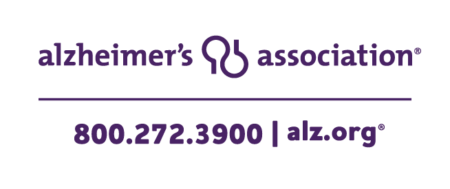The Alzheimer’s Association offers tips to help families reduce tensions and stress.
Guest article by Monica Moreno
 Receiving an Alzheimer’s diagnosis is never easy. It is life-changing for the person receiving the diagnosis and for family members. The disease may take a devastating toll on family relationships. That is, unless everyone pitches in to support caregivers and take steps to secure the financial future of the person with Alzheimer’s. These are a few important conclusions of a new survey by the Alzheimer’s Association. [1/21/2025 TCV Update: URL no longer available.]
Receiving an Alzheimer’s diagnosis is never easy. It is life-changing for the person receiving the diagnosis and for family members. The disease may take a devastating toll on family relationships. That is, unless everyone pitches in to support caregivers and take steps to secure the financial future of the person with Alzheimer’s. These are a few important conclusions of a new survey by the Alzheimer’s Association. [1/21/2025 TCV Update: URL no longer available.]
More than 1,500 American adults were surveyed, including current and former caregivers for someone with Alzheimer’s. While 91 percent agreed that caring for someone with Alzheimer’s or dementia should be a team effort, too many caregivers feel they’re not getting the support they need. Eighty-four percent of caregivers would like more support, particularly from family. Sixty-four percent felt isolated and alone.
Family stress
Without help, caregivers feel isolated, undervalued, and lack support.
Among the surveyed caregivers who experienced strain in their relationships, many felt their efforts were undervalued by family (43 percent) or the care recipient (41 percent). Contributing to the stress was a lack of communication and planning. Twenty percent of survey respondents said they had not discussed their wishes with a spouse or other family member. Only 24 percent had made financial plans to support themselves post-diagnosis.
Tips to help families navigate Alzheimer’s
Despite its seriousness, some families grew closer following an Alzheimer’s diagnosis, according to the survey. More than a third of those surveyed said caregiving actually strengthened their family relationships, especially relationships between spouses/partners. Two out of three people surveyed said they felt the experience gave them a better perspective on life, despite the physical and emotional stress associated with Alzheimer’s.
During Alzheimer’s & Brain Awareness Month (June), the Alzheimer’s Association offered tips to help mitigate family tensions and relieve caregiver stress, including:
Communicate openly.
Establish and maintain effective communication to help family members better care for loved ones with Alzheimer’s. Open communication relieves stress and simplifies life for caregivers. Families should discuss how they will care for the person with Alzheimer’s, whether the current care plan is meeting the person’s needs, and any needed modifications.
Plan ahead.
In addition to having a care plan as the disease progresses, it’s also important to have a financial plan. The survey found 70 percent fear being unable to care for or support themselves, financially. Only 24 percent have made financial plans for their future caregiving needs. Enlisting the help of qualified financial and legal advisers can help families better understand their options.
Listen to each other.
Dealing with a progressive disease such as Alzheimer’s can be stressful. Not everyone reacts the same way. Give each family member an opportunity to share their opinion. Avoid blaming or attacking each other, which only causes more stress and emotional harm.
Cooperate and conquer.
Make a list of responsibilities and estimate how much time, money and effort each will require. Talk through how best to divide these tasks among family members, based on each person’s preferences and abilities. If you need help coordinating the division of work, the Alzheimer Association’s online Care Team Calendar can help.
Seek outside support.
Families can benefit from an outside perspective. Connect with others who are dealing with similar situations. Find an Alzheimer’s Association support group in your area or join the ALZConnected online community. You can also get around-the-clock help from the Alzheimer’s Association Helpline at (800) 272-3900.
The Alzheimer’s Association  online Caregiver Center offers wide-ranging resources to help families navigate the many challenges associated with the disease. For more information, visit the Alzheimer’s Association.
online Caregiver Center offers wide-ranging resources to help families navigate the many challenges associated with the disease. For more information, visit the Alzheimer’s Association.
Monica Moreno is the Senior Director of Care and Support for the Alzheimer’s Association. She oversees and administers the national programs and strategies serving early-stage constituents and their families. She has over 20 years of experience working with people with dementia and their families. Moreno co-authored a chapter in the book Evidenced-Based Protocols for Managing Wandering Behavior, which received the American Journal of Nursing (AJN) Book of the Year Award. Moreno also served as a consultant for the film, Still Alice.








